
Teaching and Learning Design Studio
About the Studio
The Teaching & Learning Design Studio (TLDS) at Elizabethtown College is a hub for enhancing teaching methods and supporting faculty and staff. The Studio offers a variety of services, including professional development, coaching on using educational technologies, and personalized support for course design. It's a resource aimed at improving teaching effectiveness and helping faculty engage students more deeply in their learning journey.
The Studio promotes and supports a relationship- and learner-centered culture of instruction, guidance, and scholarship, with a focus on evidence-based pedagogies from the scholarship of teaching and learning that foster student academic engagement, advance the College’s mission, and cultivate innovative teaching.
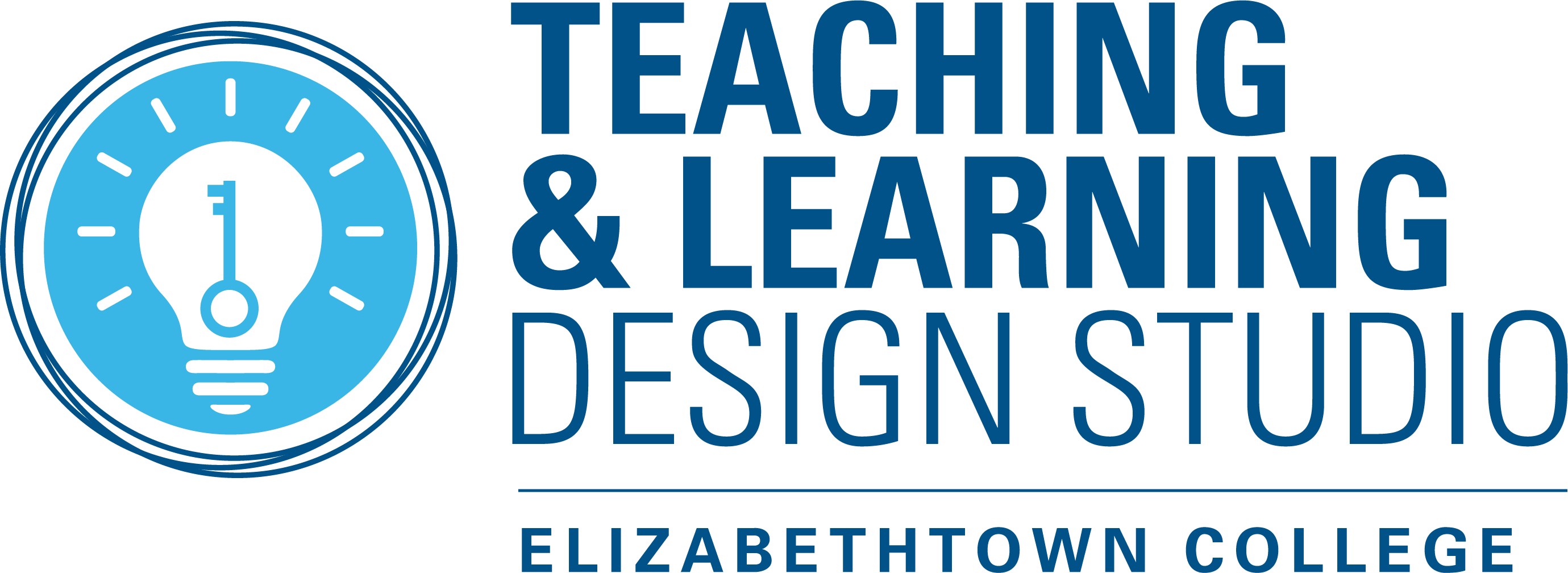
Contact Us:
Nicarry 114 | studio@etown.edu | 717-361-1192
One-Page Teaching Guides
Connecting With Students
Teaching in Large Classes: Engagement
Teaching Non-Majors
Balancing Affirmation with Critique
Creating Accessible Canvas Sites
Resources for Self-Care
Teaching in Large Classes: Grading
The Microsoft Accessibility Checker
Applying Design Thinking to Mentoring
Flexible Assignment Deadline Policies
Design Thinking Stage I: Research
“New Quizzes” in Canvas
Approaches to Teaching History
Zoom or Microsoft Teams?
Assessing Participation
Midterm Feedback
Instructor Clarity
To Grade with 0 or To Not Grade with 0
Open Education Resources
Library Resources for Faculty
Professional Development Events
The Teaching and Learning Design Studio (TLDS) supports faculty and staff through a range of professional development events focused on innovative, reflective, and inclusive teaching.
From hands-on workshops and lunch-and-learn discussions to collaborative panels and technology-focused sessions, TLDS events create space for educators to connect, share strategies, and explore emerging practices that enhance student learning. Whether addressing topics like grading approaches, classroom dialogue, or the use of AI in teaching, these gatherings foster a supportive community dedicated to continuous growth and excellence in education.
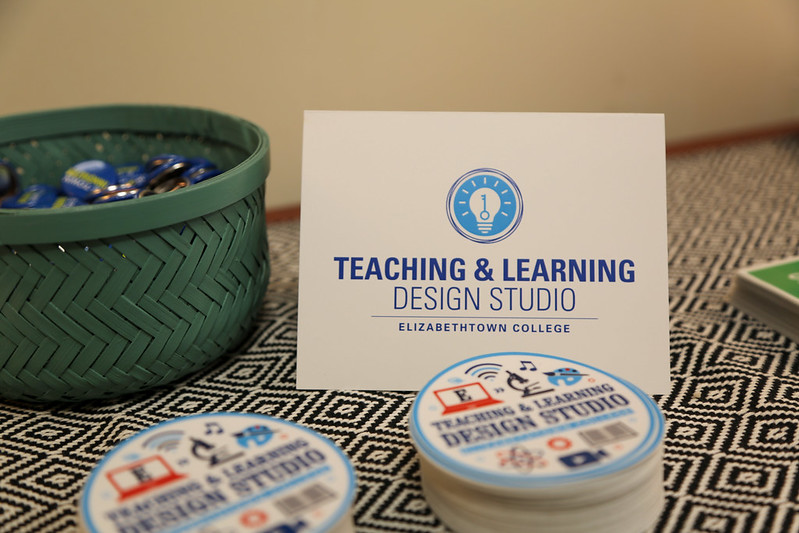
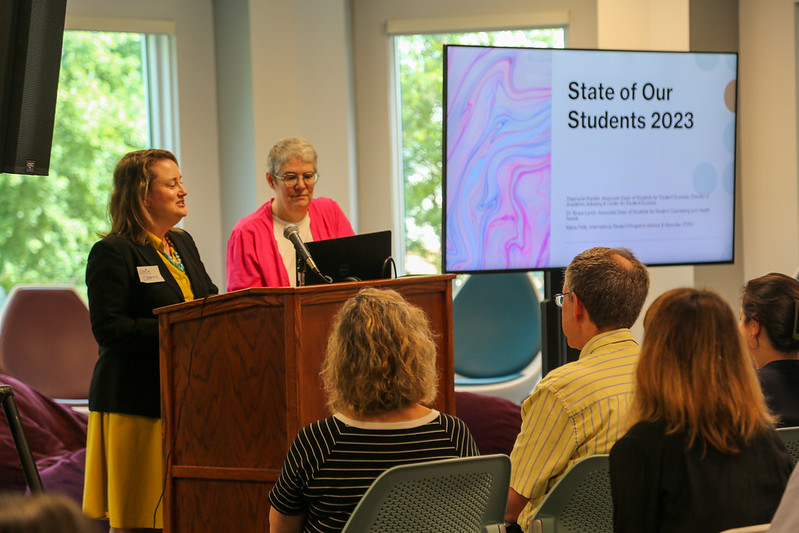
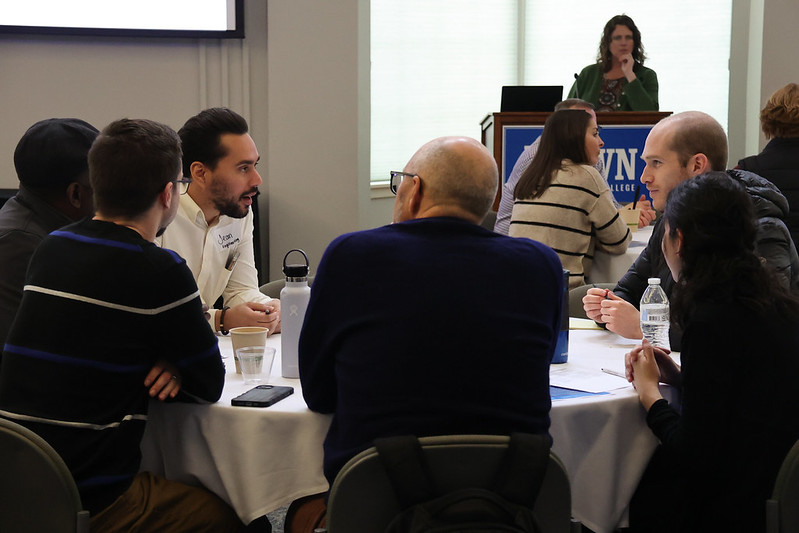
Meet The Team
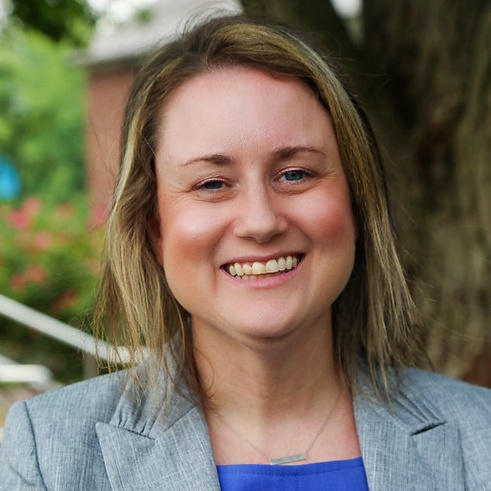
Dr. Kathryn Caprino
Director of the Teaching & Learning Design Studio
Dr. Caprino is an Associate Professor of PK-12 New Literacies in the Education Department and the Director of the Teaching & Learning Design Studio. She is passionate about supporting and coaching faculty in their teaching and enjoys developing meaningful professional development opportunities that help instructors best meet their students' needs.
Prior to earning her doctorate at the University of North Carolina at Chapel Hill, Dr. Caprino taught middle school and high school English in Virginia and North Carolina. She has taught first year composition at Durham Technical Community College and the University of North Carolina at Chapel Hill. Before joining the faculty at Elizabethtown, she co-coordinated the English Education program at the University of Florida. She is a trained reading specialist and instructional coach.
She lives in Lancaster County with her husband and two little boys.

Dr. Sharon Birch
Assistant Director of the Teaching and Learning Design Studio and Instructional Technologist
Dr. Sharon Birch is an instructional designer and instructional technologist with twenty-five years of experience in the small college environment. Her professional interests include digital literacy, statistical literacy, and critical digital pedagogy. Sharon holds a BA in sociology from Southwestern University and a MA and PHD in Sociology from Bowling Green State University where she specialized in social demography. After stints as a researcher for the state of Texas and for the US Census Bureau, she returned to higher education as an instructional technologist specializing in quantitative social science pedagogy and tools. She has taught undergraduate sociology courses and first year seminars regularly throughout her career and enjoys using these classes as opportunities to experiment with technological and pedagogical ideas.
Design Fellows
Learning Design Fellows collaborate with the Studio to get personalized coaching, support, and feedback they need to complete their projects. They attend periodic Studio meetings to give updates on their projects and are asked to disseminate their projects and serve as campus resources after their fellowship ends.
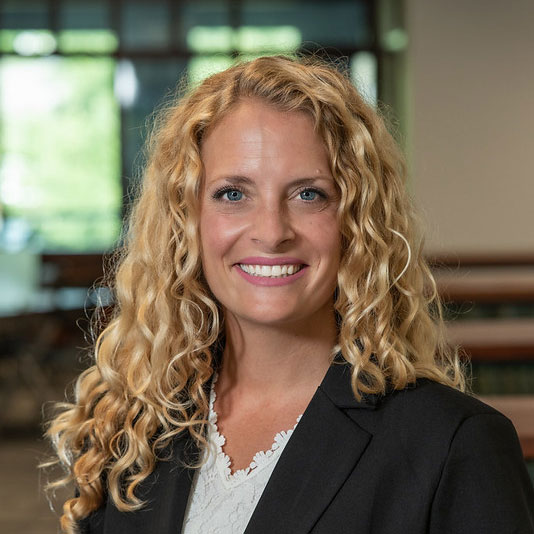
Dr. Laura Cunningham
Assistant Teaching Professor of Occupational Therapy
Cunningham's project is centered around supporting neurodiverse students across campus. She has done extensive work in this area in her occupational therapy courses and is using her fellowship as an opporttunity to help colleagues learn best practices when supporting neurodiverse learners. She was instrumental in the planning for a campus-wide instructional development day and continues to be an asset to the campus community in the area of being neuroinclusive in our teaching practices.
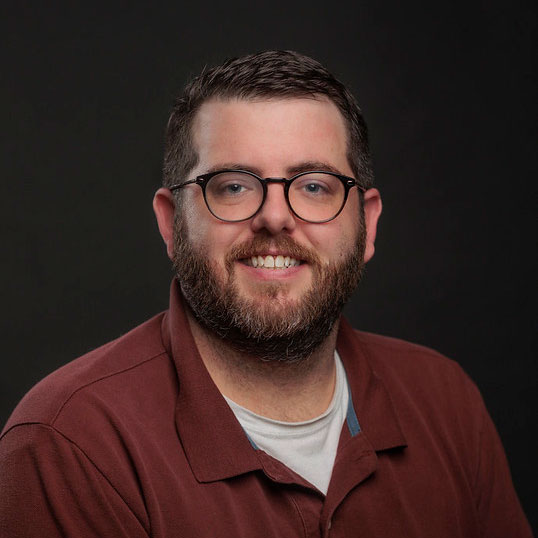
Dr. Patrick Allen
Assistant Professor of English Literature
Allen plans to expand on his work with having his students engage in social annotation with the Hypothesis tool in one of his literature courses. The fellows project will allow him to delve deeply into how to best support students' annotation and close reading skills. Faculty across campus will benefit from his project as they aim to have their students engage in collaborative learning while at the same time practicing close reading and research skills.
